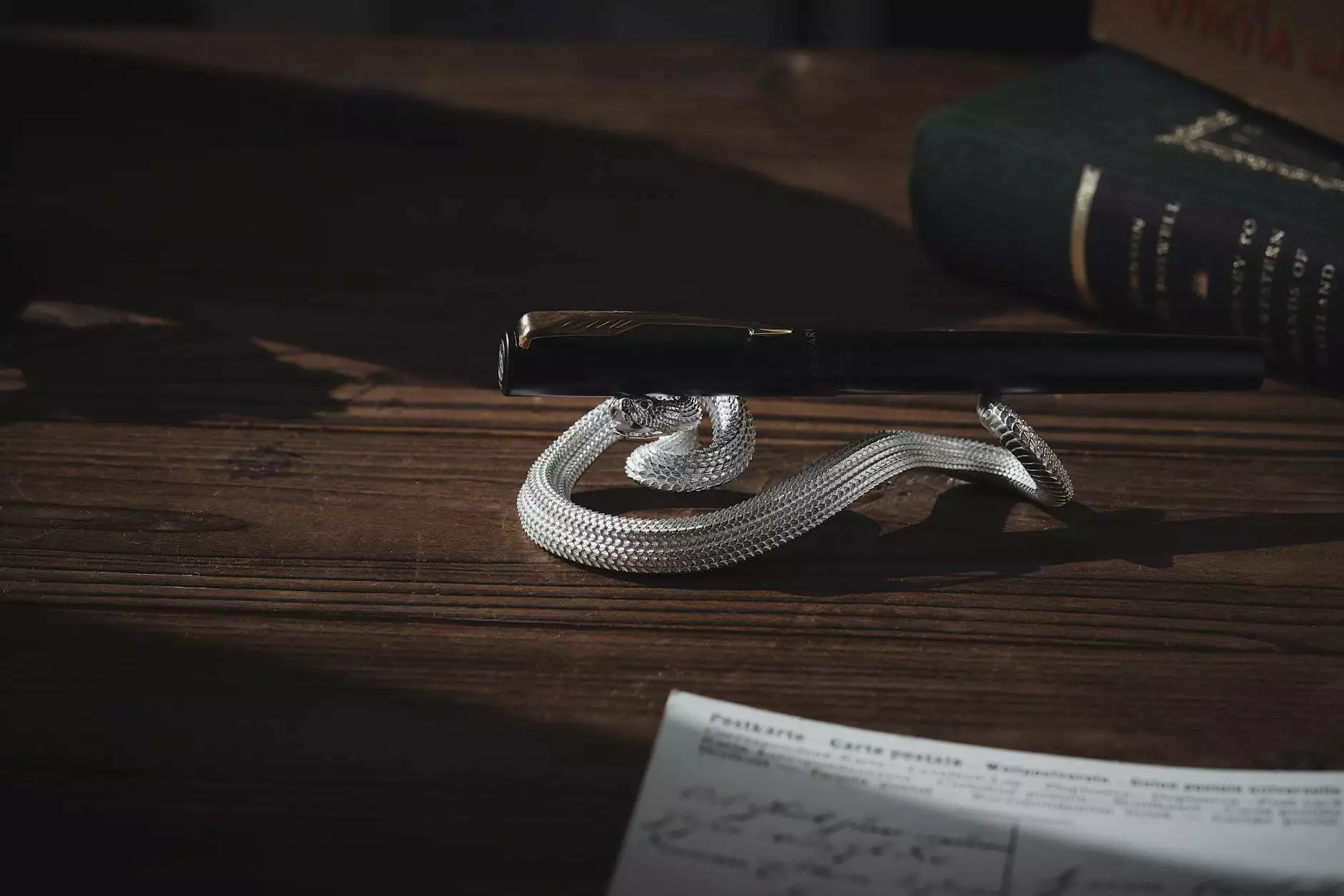The Ultimate Guide to Pet Snake Sale

In recent years, the pet snake sale market has gained immense popularity among reptile enthusiasts and potential pet owners alike. Snakes are unique, low-maintenance pets that bring a touch of the exotic into our homes. This guide will take you through everything you need to know about purchasing a pet snake, ensuring a smooth transition into snake ownership.
Why Choose a Pet Snake?
Snakes may not be the first option that comes to mind when considering a pet, but they offer a multitude of benefits:
- Low Maintenance: Snakes require minimal daily care, making them ideal for busy individuals.
- Space Efficient: Unlike traditional pets, snakes do not need large living spaces; a small vivarium can suffice.
- Hypoallergenic: Snakes do not produce dander, making them suitable for those with allergies.
- Fascinating Behavior: Observing a snake can be an intriguing experience, with each species exhibiting unique behaviors.
Understanding the Basics of Snake Ownership
Before diving into a pet snake sale, it's essential to be thoroughly informed about snake care and ownership. Here are some fundamental aspects to consider:
Choosing the Right Species
There are numerous snake species available for sale, and each has its specific needs and temperament:
- Ball Python: Known for its docile nature and manageable size, the Ball Python is one of the best options for beginners.
- Corn Snake: This species is easy to care for and comes in a variety of colors and patterns.
- King Snake: King snakes are resilient and can adapt well to various habitats.
- Boa Constrictor: Ideal for experienced owners, these snakes require more space and care.
Understanding Snake Habitats
Proper habitat is crucial for your snake’s health:
- Vivarium or Terrarium: This is the primary living space; ensure it's appropriately sized for your snake species.
- Temperature Gradient: Snakes are ectothermic and require a gradient from warm to cool areas within their habitat.
- Humidity Levels: Different species require varying humidity, so research your snake’s needs carefully.
- Hides and Decor: Providing hiding spots mimics their natural environment and reduces stress.
Where to Buy Your Pet Snake
When searching for a pet snake sale, it is critical to choose reputable sources to ensure the health and well-being of your new pet.
Local Reptile Stores
Local specialty stores often have well-cared-for animals. Visiting these shops allows you to:
- See the snake’s living conditions.
- Ask the staff about the animal's diet and health.
- Get information on care firsthand.
Car Shows and Conventions
Reptile expos often feature a variety of breeds and breeders. These events allow you to:
- Meet breeders in person and discuss care.
- Find unique morphs or species that might not be available in stores.
Online Pet Snake Sales
Purchasing a snake online has its pros and cons:
- Pros: Wide selection, often at competitive prices, and the ability to read reviews.
- Cons: Risks include shipping stress and inadequate care before shipment.
Assessing the Health of a Pet Snake
When considering a pet snake sale, assessing the health of the snake is paramount:
- Clear Eyes: Healthy snakes have bright, clear eyes without discoloration.
- Active Behavior: A healthy snake should be curious and active, not lethargic.
- Healthy Skin: The skin should be free of scars, mites, and shed properly.
Cost Considerations for Snake Ownership
Owning a snake, while generally cost-effective compared to other pets, still involves upfront and ongoing costs:
- Initial Purchase Price: Prices vary greatly depending on the species, age, and breeder.
- Setup Costs: Calculating the cost for the vivarium, heating, lighting, and decor is essential.
- Regular Care Expenses: This includes food, substrate, and occasional vet visits.
Feeding Your Pet Snake
Feeding a snake is not as complicated as it may seem, but there are specific dietary needs to consider:
- Prey Type: Most snakes eat rodents (mice, rats) or commercial diets specifically formulated for snakes.
- Feeding Frequency: Young snakes often require more frequent feedings than adults.
- Live vs. Frozen: Consider the ethics and safe practices of feeding your snake live or frozen prey.
Handling and Socialization
Like all pets, snakes benefit from proper handling and gentle socialization:
- Start Slowly: Allow your snake to acclimate before beginning to handle it.
- Regular Interaction: Regular, gentle handling can help your snake become more comfortable with human interaction.
- Recognizing Stress Signs: It's important to respect your snake’s comfort; signs of stress include hissing or defensive postures.
Conclusion: The Joys of Owning a Pet Snake
Choosing to invest in a pet snake sale opens the door to an extraordinary world of reptile ownership. With the right care and understanding, a snake can become a cherished and fascinating companion. Whether you’re drawn to their unique appearances, intriguing behaviors, or low-maintenance needs, snakes have much to offer. As you venture into bringing a snake home, remember to do thorough research and choose your new pet wisely. From EU Exotic Reptiles, you can find a variety of snakes waiting to become part of your family.









